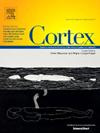Numerical cognition across the lifespan: A selective review of key developmental stages and neural, cognitive, and affective underpinnings
IF 3.2
2区 心理学
Q1 BEHAVIORAL SCIENCES
引用次数: 0
Abstract
Numerical cognition constitutes a set of hierarchically related skills and abilities that develop–and may subsequently begin to decline–over developmental time. An innate “number sense” has long been argued to provide a foundation for the development of increasingly complex and applied numerical cognition, such as symbolic numerical reference, arithmetic, and financial literacy. However, evidence for a direct link between basic perceptual mechanisms that allow us to determine numerical magnitude (e.g., “how many” objects are in front of us and whether some of these are of a “greater” or “lesser” quantity), and later symbolic applications for counting and mathematics, has recently been challenged. Understanding how one develops an increasingly precise sense of number and which neurocognitive mechanisms support arithmetic development and achievement is crucial for developing successful mathematics curricula, supporting individual financial literacy and decision-making, and designing appropriate intervention and remediation programs for mathematical learning disabilities as well as mathematics anxiety. The purpose of this review is to provide a broad overview of the cognitive, neural, and affective underpinnings of numerical cognition–spanning the earliest hours of infancy to senior adulthood–and highlight gaps in our knowledge that remain to be addressed.
跨越生命周期的数字认知:对关键发展阶段和神经、认知和情感基础的选择性回顾
数字认知构成了一套与等级相关的技能和能力,这些技能和能力随着发展时间的推移而发展,并可能随后开始下降。长期以来,人们一直认为,先天的“数感”为越来越复杂和应用的数字认知(如符号数字参考、算术和金融知识)的发展提供了基础。然而,最近有证据表明,允许我们确定数字大小的基本感知机制(例如,“有多少”物体在我们面前,其中一些是“较大”还是“较小”的数量)与后来计数和数学中的符号应用之间存在直接联系。了解一个人如何发展出越来越精确的数字感,以及哪些神经认知机制支持算术的发展和成就,对于开发成功的数学课程、支持个人金融素养和决策,以及为数学学习障碍和数学焦虑设计适当的干预和补救方案至关重要。这篇综述的目的是对数字认知的认知、神经和情感基础提供一个广泛的概述——从婴儿期最早的几个小时到成年后期——并强调我们在知识方面仍有待解决的差距。
本文章由计算机程序翻译,如有差异,请以英文原文为准。
求助全文
约1分钟内获得全文
求助全文
来源期刊

Cortex
医学-行为科学
CiteScore
7.00
自引率
5.60%
发文量
250
审稿时长
74 days
期刊介绍:
CORTEX is an international journal devoted to the study of cognition and of the relationship between the nervous system and mental processes, particularly as these are reflected in the behaviour of patients with acquired brain lesions, normal volunteers, children with typical and atypical development, and in the activation of brain regions and systems as recorded by functional neuroimaging techniques. It was founded in 1964 by Ennio De Renzi.
 求助内容:
求助内容: 应助结果提醒方式:
应助结果提醒方式:


